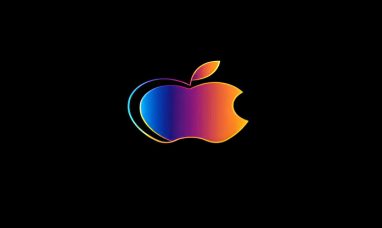When discussing MSFT stock, one cannot ignore Microsoft Corporation’s (NASDAQ:MSFT) $13 billion bet on OpenAI. That partnership gave Microsoft a 49% stake in OpenAI’s profits and integrated AI capabilities across its product suite, from Azure to Copilot. With OpenAI’s valuation now topping $300 billion, Microsoft’s early gamble has paid off handsomely.
But even as OpenAI strengthens ties with Alphabet Inc. (NASDAQ:GOOGL), Google LLC (NASDAQ:GOOG), and Apple Inc. (NASDAQ:AAPL), Microsoft is doubling down on its own AI future. The company is quietly building proprietary models such as MAI-Voice-1 for speech and MAI-1-Preview for advanced text tasks. This shows that Microsoft wants more independence in AI—an important consideration for investors weighing the future of MSFT stock.
Strong Financial Results Powering MSFT Stock
The most recent quarter reinforced Microsoft’s reputation for consistency. Revenue hit $76.4 billion, an 18% year-over-year increase, while earnings rose 23.7% to $3.65 per share, beating estimates.
Key highlights included:
-
Azure growth: Revenue up 39% year-over-year, driving cloud momentum.
-
Cloud segment: Grew 25.6% to $29.9 billion.
-
Operating margin: Expanded to 44.9% from 43.1% last year.
-
Cash strength: $94.6 billion on hand with zero short-term debt.
This marks Microsoft’s ninth consecutive earnings beat and its fourth straight quarter of double-digit earnings growth. For MSFT stockholders, such performance provides a foundation of stability rarely matched in the tech sector.
Cloud, AI, and Infrastructure Expansion
MSFT stock is not just riding the AI hype cycle. Microsoft’s Azure platform remains a cornerstone, offering computing, storage, networking, and analytics solutions. Its Azure AI Foundry framework helps enterprises scale AI applications seamlessly, reinforcing its enterprise moat.
The company is also building gigawatt-class data centers with liquid cooling, an innovation necessary to handle massive AI workloads. Combined with its full-stack AI strategy—owning both infrastructure and applications—Microsoft holds a structural advantage over rivals.
Meanwhile, GitHub Copilot and Microsoft 365 Copilot are embedding AI directly into daily workflows. Copilot’s reach extends to over 800 million users, while GitHub engages 100 million developers globally. These integrations strengthen Microsoft’s lock-in effect and support sustained growth for MSFT stock.
Beyond AI: Quantum and Future Growth
Innovation for Microsoft extends into quantum computing. In November 2024, Microsoft announced a collaboration with Atom Computing to advance Azure Quantum. By July 2025, the company achieved the first Level 2 quantum computer deployment, marking a step toward commercializing this transformative technology.
Such initiatives highlight why MSFT stock is more than an AI play—it is also a cloud, infrastructure, and next-gen computing powerhouse.
Analyst Sentiment on MSFT Stock
Wall Street analysts remain bullish. Out of 47 analysts, 39 rate MSFT stock as a “Strong Buy,” five as a “Moderate Buy,” and three as a “Hold.” The consensus price target stands at $622.85, about 23% above current levels. With a market cap of $3.8 trillion, Microsoft is the world’s second most valuable company, yet it continues to deliver growth rates exceeding sector averages.
Should You Buy, Sell, or Hold MSFT Stock?
Given its financial resilience, expanding AI ecosystem, and long-term bets in cloud and quantum computing, MSFT stock appears well-positioned for further upside. The stock is already up 19.5% year-to-date, but the combination of growth, stability, and innovation suggests more room to run.
For investors, the choice comes down to time horizon. Short-term traders may see volatility as Microsoft balances its OpenAI partnership with independent AI ambitions. Long-term holders, however, can view MSFT stock as a reliable growth engine in the tech sector.
Bottom line: MSFT stock remains a Buy for growth-focused investors, supported by cloud dominance, AI innovation, and robust financial performance.
Featured Image: Pixabay©efes









